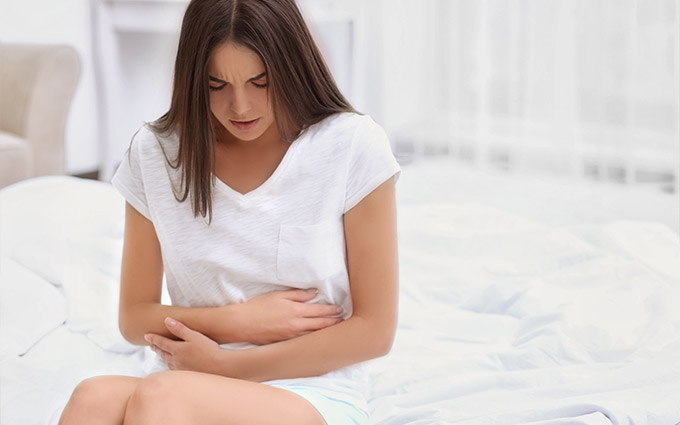
What is Endometriosis

Endometriosis is a common condition that affects women, typically from mid to late teens up to menopause. Some cases have been recorded even before the onset of the menstrual cycle and in some rare instances, cases were reported after menopause. Up to 1 in 10 women may be affected by the disease during their fertile life. Unfortunately, there is a strong association between endometriosis and infertility and we see a lot of this at Create Health. Up to 4 in 10 women who suffer infertility even without any symptoms of the condition may be diagnosed with endometriosis.
What is Endometriosis?
Endometriosis is present when there is endometriotic cells (tissue similar to the lining of the uterus) found outside the endometrial cavity. The most common sites where endometriosis is often found is on the ovaries, the pelvic side walls, surface of the bowels and the bladder.
What causes Endometriosis?
There are several theories as to what causes endometriosis:
- The most common theory relates to ‘retrograde menstruation’, where some of the monthly menstrual blood will settle through the fallopian tubes inside the abdomen and pelvis.
- The other theory is when there are spontaneous changes that occur within the layers of tissue that lines our abdominal cavity, called the peritoneum. This change results in the formation of endometriotic cells.
- The third possible mechanism for the development of endometriosis, is the transport of the endometriotic cells from the normal location within the uterus, to other places in the body through the blood or the lymphatic system. This explains the rare occurrence of endometriosis in the chest or the head and neck.
Signs & Symptoms
Our endometriosis patients typically suffer severe pelvic pain, painful periods, as well as pain with sexual intercourse. Abnormal menstruation is also a common symptom.
- Endometriosis can also cause or be associated with infertility. This can occur in a few different ways. Even in mild to moderate disease, endometriosis can lead to an inflammatory reaction that can inhibit the implantation of the embryo. This can occur with both natural conception and with assisted reproductive technology.
- In moderate to severe disease, deformity of the female genital tract anatomy can be caused which in turn, can result in blockage of the fallopian tubes or other changes that make conceiving very difficult if not impossible. When endometriosis develops on the ovaries, there can be a reduction in ovarian egg reserve. This can also impact a woman’s ability to conceive.
- The multiple surgical procedures women with severe endometriosis often undergo can also lead to further reduction of the ovarian egg reserve.
Treatment Options
There are medical and surgical management options for endometriosis. Many patients who have minimal to no symptoms may not need any significant intervention. Management of endometriosis is usually tailored towards the patient’s symptoms and fertility needs.
The contraceptive pill is the most widely used first treatment option. The contraceptive pill and other hormonal interventions may be sufficient for the majority of patients, especially younger women and those who haven’t had children. This measure is usually enough to control the pain with menstrual cycles and other symptoms. If these basic measures fail, other medical options can be attempted including the Mirena IUD or hormonal suppression medications like the Zoladex. Those medications are usually tolerated well by the majority of women.
If the medical approach fails to control the symptoms and/or if fertility is desired, a laparoscopy may be indicated. With laparoscopy, the endometriosis can be visualised clearly and removed carefully. This helps to restore the deformed anatomy from the disease while preserving / protecting the fertility organs at the same time. Excision of the disease laparoscopically is a popular treatment option as it usually leads to significant improvement in the symptoms experienced by women and also improves fertility outcomes. In severe cases of endometriosis especially if the ovaries are involved, and if the bowels or the urinary bladder involved, a major surgical intervention may be required with a multidisciplinary surgical team including a colorectal or urological surgeon.
Summary
At Create Health, we care for many women with endometriosis and are skilled in the management of all cases, from mild ones to very severe disease. Our fertility and endometriosis surgeons are highly experienced and well regarded. They work with a multidisciplinary team of other surgical disciplines when required. Our doctors also work with our inhouse allied health team to further help women with their pain. Our pelvic pain specialist, dietician, perinatal psychologist and pelvic floor physiotherapist give women important and practical help. They will assist with inflammatory diet planning and foods to avoid, strategies to deal with the stress of living with chronic pain and aim to address symptoms of sexual pain, constipation and urinary issues. These health specialists all have a role to play in modern endometriosis management and can help you.
For more information on specialist endometriosis management please contact us on (03) 9873 6767 or email us via our contact form.
« back


 (03) 9873 6767
(03) 9873 6767  By Dr Haider Najjar - Obstetrician and Gynaecologist
By Dr Haider Najjar - Obstetrician and Gynaecologist